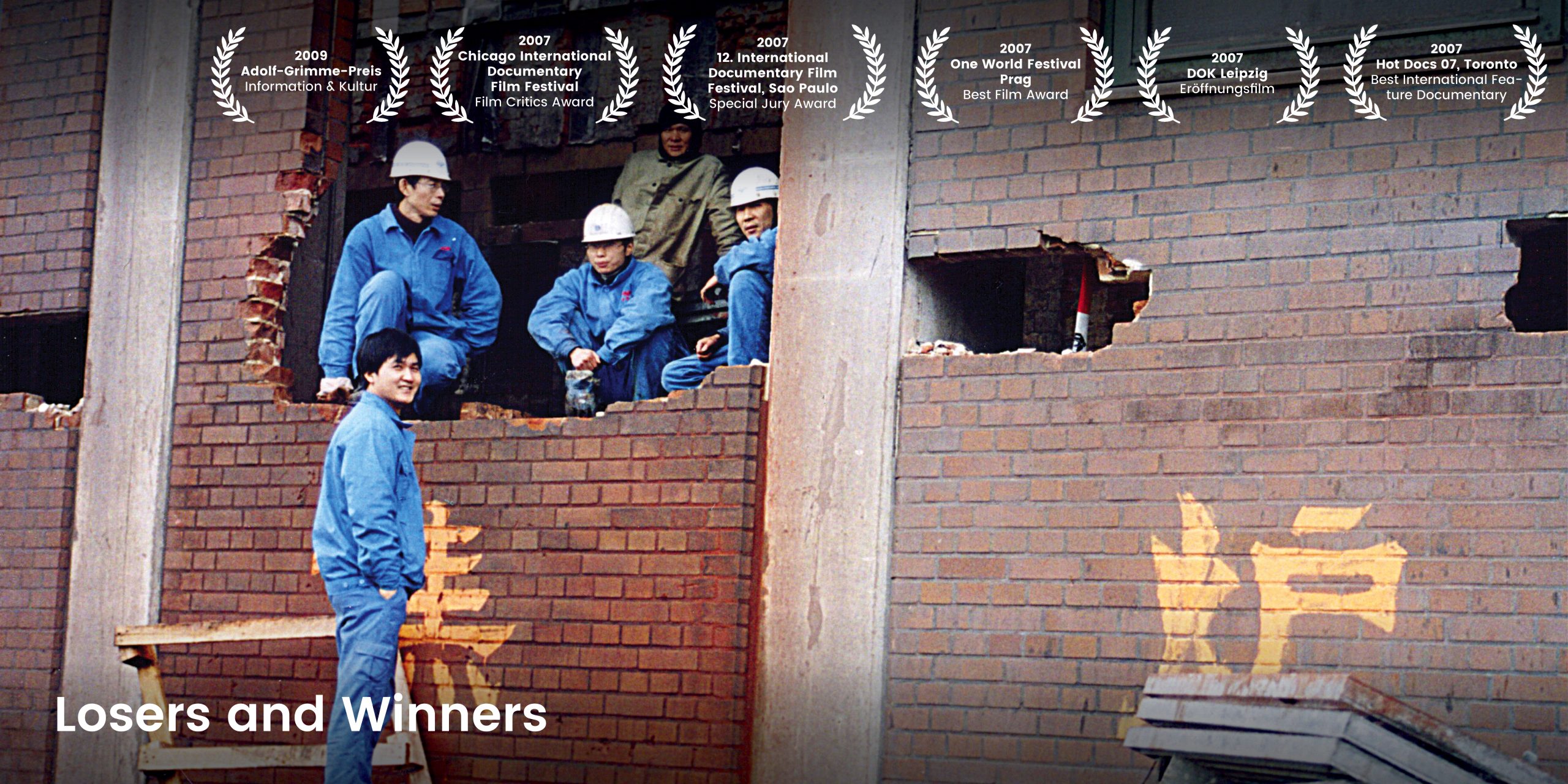
Losers and Winners
Work is Just a Part of Life
DOCU | FILM | CINEMA
GERMANY 2006
96 Min (DT, EN, CHI)
Directors: Ulrike Franke, Michael Loeken
Distribution: GMfilms
For educational institutions:
The film shows as a gigantic industrial site is dismantled, documenting the stories accompanying its disappearance: how the coke workers in the industrial Ruhr Region experience the arrival and working methods of the Chinese, their feelings upon seeing their pride in their work vanish along with what was the most modern coke factory in the world, but also the strain and conflicts the Chinese workers face during their 60-hour work week far away from home and family, caught between euphoria and doubts about their future.
TRAILER
AWARDS
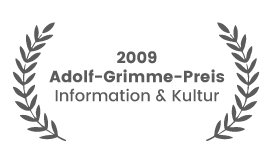
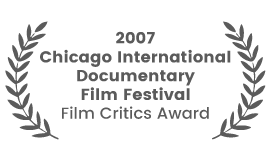
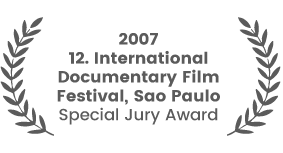
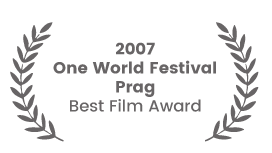
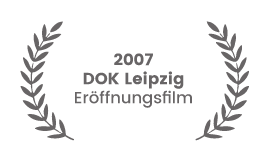

FESTIVALS
2023 — Ruhrtriennale / Film Retrospective loekenfranke / Bochum
2009 — 4. DOC À TUNIS / Tunis, Turnesia
2009 — 57. Trento Film Festival / Trento, Italien
2008 — 11. CinemAmbiente – Environmental Film Festival / Turin, Italy
2008 — SIEFF / 14. Sardinia International Ethnographic Film Festival / Nuoro, Italy (Award)
2008 — One World Romania – Documentary Film Festival / Bukarest, Romania
2008 — 3. Guth Gafa – International Documentary Film Festival / Donegal, Ireland
2008 — 6. Gdańsk DocFilm Festival – Dignity and Work / Danzig, Poland
2008 — Maailmafilm – Tartu World Film Festioval / Tartu, Estonia
2008 — Deutsches Filmfestival Tel Aviv / Tel Aviv, Israel
2008 — Dialëktus Fesztivál / Budapest, Ungarn
2008 — ZAGDOX / ZagrebDox – International Film Festival / Zagreb, Croatia
2008 — BIFFES / 2. Bengaluru International Film Festival / Bangalore, India
2007 — 7. WATCH DOCS – International Film Festival Warschau / Warschau, Polen (Award)
2007 — German Film Festival / Dublin, Ireland
2007 — 10. Festival of German Films / London, GB
2007 — Týden Geografie / Ústí nad Labem, Czech Republic
2007 — 4. Verzió Film Festival / Budapest, UHungary
2007 — Jeden svet / 8. Medzinárodny festival documentárnych filmov / Bratislava, Slovakia
2007 — Leiden International Film Festival / Leiden, Netherlands
2007 — 4. World Film Festival of Bangkok / Bangkok, Thailand
2007 — Astra Film Fest / Sibiu International Film Festival / Sibiu, Romania
2007 — 5. Festival Internacional de Cine de Morelia / Morelia, Mexiko
2007 — DOCNZ / International Documentary Film Festival / New Zealand
2007 — German Currents Film Festival / Los Angeles, USA
2007 — Festival européen des 4ecrans / Paris, France
2007 — MIDBO / 9. Muestra Internacional Documental / Bogotá, Colombia
2007 — 7. Festival de Cine Alemán / Buenos Aires, Argentina
2007 — Stranger Than Fiction / Documentary Film Festival / Dublin, Ireland
2007 — 1. Hachenburger Filmfest (Preis)
2007 — Dokufest / International Documentary and Short Film Festival / Prizren, Kosovo (Award)
2007 — Fünf Seen Filmfestival / Herrsching, Germany
2007 — SilverDocs / Silverdocs Documentary Festival / Silver Spring, USA
2007 — Rooftop Films 2007 / New York, USA
2007 — 2. Pravo Ljudski Film Festival / Sarajevo, Bosnia/Herzegovina
2007 — 9. Festival de cine Alemán / Madrid, Spain
2007 — DOK.FEST München / 22. Internationales Dokumentarfilmfestival München, Germany
2007 — 4. CROSSING EUROPE / filmfestival linz / Linz, Austria
2007 — 40. WorldFest / Houston International Film Festival / Houston, USA (Award)
2007 — Hot Docs 07 / Canadian International Documentary Festival / Toronto, Canada (Award)
2007 — 4. dokumentarfilmwoche hamburg, Germany
2007 — CIDF / Chicago International Documentary Film Festival / Chicago, USA (Award)
2007 — It’s All True / 12. International Documentary Film Festival / Sao Paulo, Brazil (Award)
2007 — LIDF / London International Documentary Film Festival / London, GB
2007 — 9. One World International Human Rights Documentary Film Festival / Czech Republic (Award)
2007 — 33. Internationales Filmwochenende Würzburg / Germany (Opening film)
2006 — GZDOC / Guangzhou International Documentary Film Festival / China
2006 — 17. Kinofest Lünen, Germany
2006 — 30. Duisburger Filmwoche, Germany
2006 — DOK Leipzig / 49. Internationales Leipziger Festival für Dokumentar- und Animationsfilm / Germany (Opening film)
SYMPOSIUM / SERIES / PUBLICATIONS
in context of
2024 — Film series / Duisburg im Bilde / Duisburg, Germany
2018 — Kultursommer 2018 / Industrie und Kultur, Enspel, Germany
2018 — Film series / Flöze weltweit / Dortmunder U, Dortmund, Germany
2014 — Screening and film talk / Conferenc New Industries / Dortmunder U, Dortmund Germany
2011 — Industrial on Tour / HMKV Hartware MedienKunstVerein / Danzig, Tarnow, Krakow, Bytom und Lodz (Poland)
2010 — Centre of Contemporary Art Znaki Csazu / Torun, Poland
2009 — Crossing Borders / Universität Hildesheim, Institut für Sozial- und Organisationspädagogik, Hildesheim, Germany
2009 — Event / Hildesheim Open University, Germnay
2009 — Series / Ethics and Economy / Goethe-Institut / Helsinki, Finland
2008 — Screening and film talk / Arbeit. Kultur. Fest / DGB-Kultursommerfestival, Germnay
2008 — Installative presentation / Where do you walk today?/ Dortmunder Museumsnacht / HMKV Hartware MedienKunstVerein, Dortmund, Germany
2008 — Lectures, Filmvfilm screenings and discussions / China Tour / Invitation of the German Foreign Office and Goethe-Institut / Beijing and Shanghai (China)
2008 — Elektrische Schatten / Bonner Gesellschaft für China Studien / Bonn, Germany
2008 — Exhibition / Shrinking Cities / Kulturstiftung des Bundes / Dortmund, Germany
2007 — Wandel der Arbeit / Fachhochschule Potsdam, Germnay
2007 — visible evidence / Ruhr-Universität Bochum, Germany
2007 — AHCR-funded Postgraduate Conference / University of Leeds, GB
2007 — Picture gallery and documentation / DIE GAZETTE Das politische Kulturmagazin, N° 13
2007 — Maurizio Marinelli / University of Bristol, Centre for East Asian Studies / Bristol, GB
2007 — Goethe-Institut Glasgow / Filmhouse Edinburgh, Scotland
REVIEW
„Chinese optimism for the future, glowing from the faces and fuelled each day by Mao quotes, and European self-sufficiency that will be punished by history – probably never before in cinema have we been able to experience the symptoms of a dawn of a new era as closely as in this captivatingly accurate observation that’s seasoned with apt irony.“
Harald Jähner // Frankfurter Rundschau // 29.11.2006
„A fantastic piece of political documentary narrative cinema that puts the current conditions of global division of labour into an unusual regional perspective and raises many questions.“
Silvia Hallensleben // tagesspiegel.de // 13.11.2006
„When Ulrike Franke and Michael Loeken heard about this undertaking, they immediately recognised the kind of broad view that opens up here – globalisation as tragedy and farce at the same time.“
Knut Elstermann // Berliner Zeitung // 13.04.2007
„At its premiere at the Leipzig Documentary Film Festival 2006, Losers and Winners caused consternation. No film had ever located Germany so convincingly on the losing side of globalisation. But optimism always has something infectious about it, even if it comes at one’s own expense: anyone can swim out into the „sea of learning“. Hans-Jörg Rother // Der Tagesspiegel // 13.04.2007
STILLS
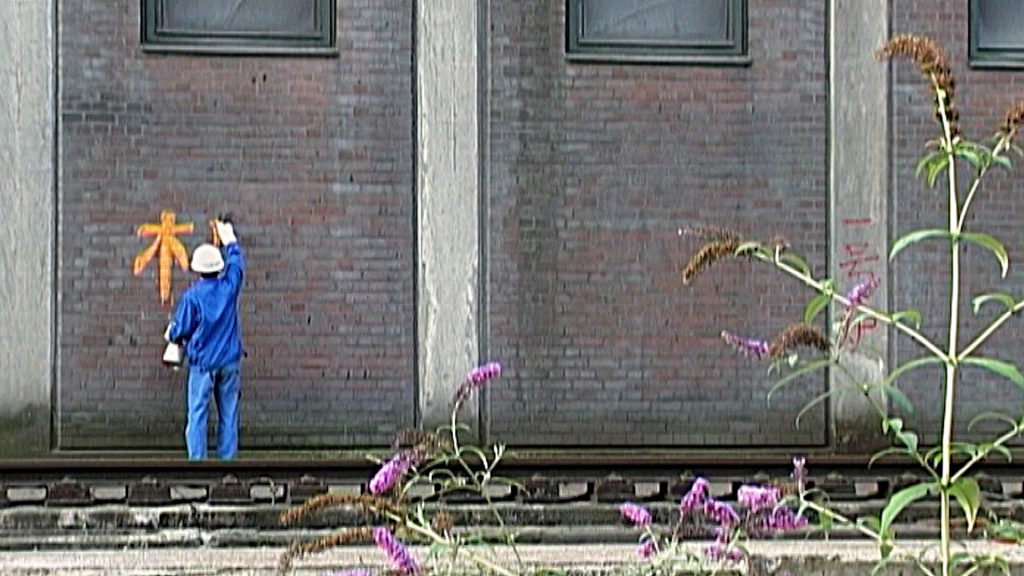


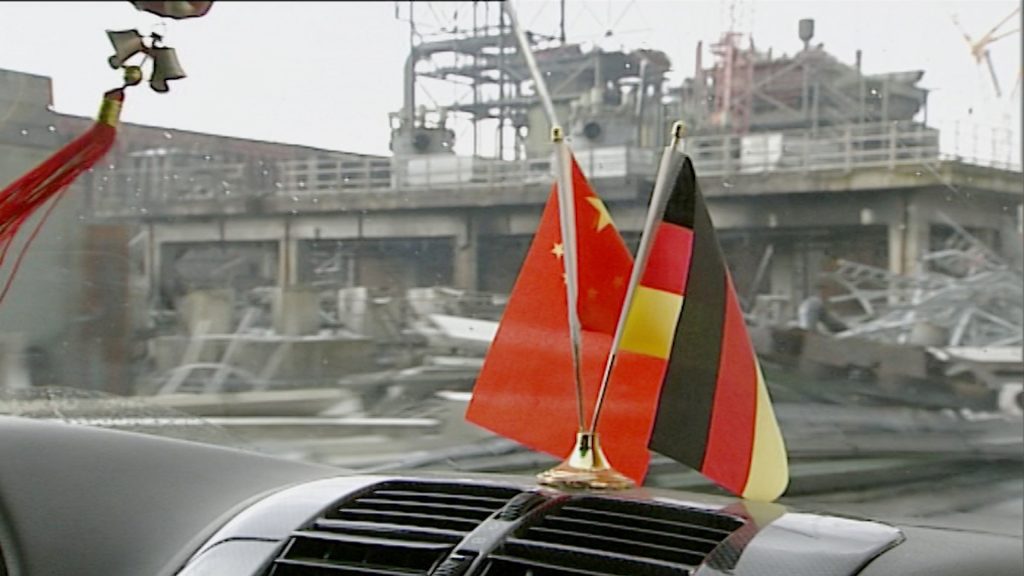
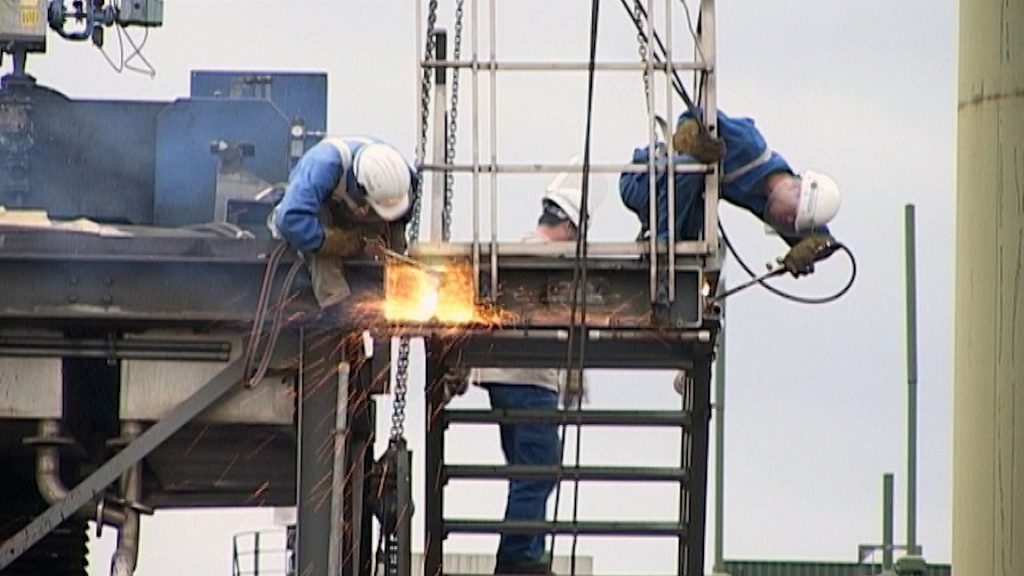

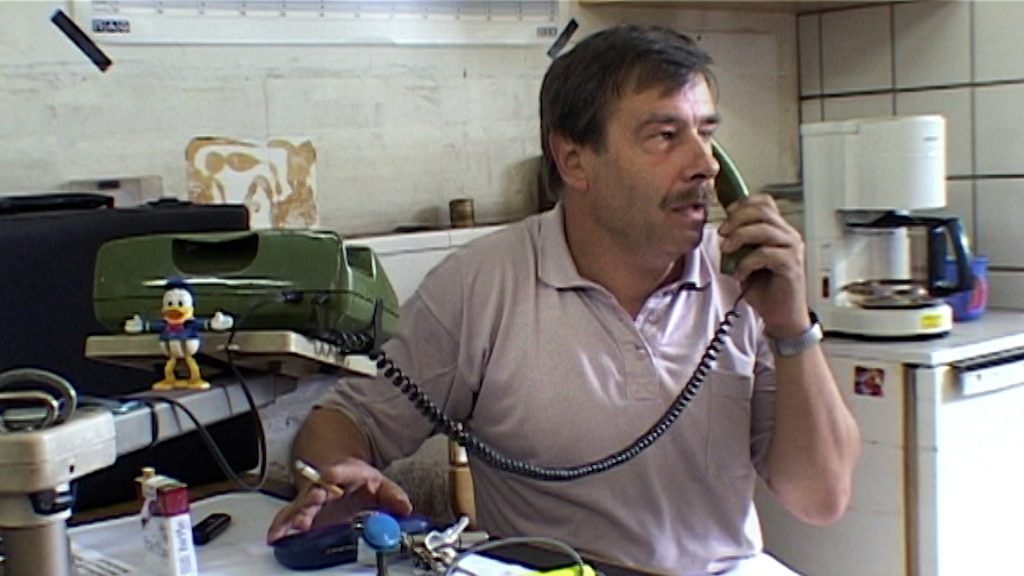
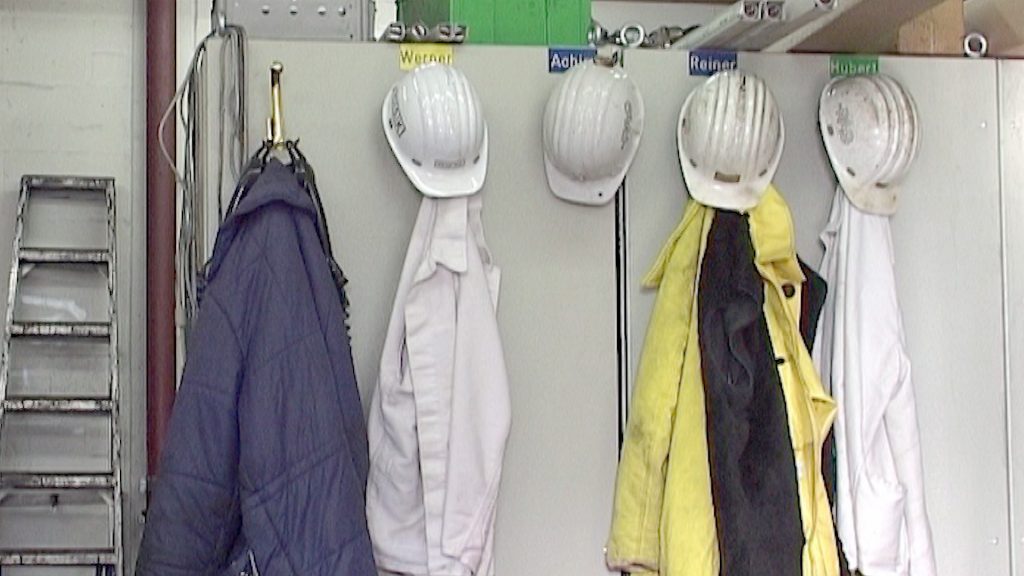

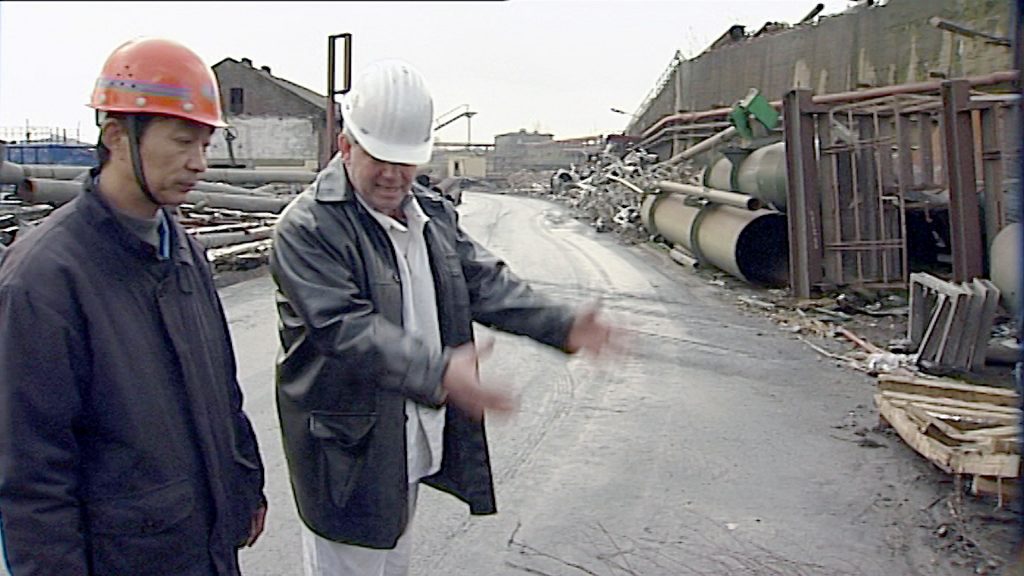
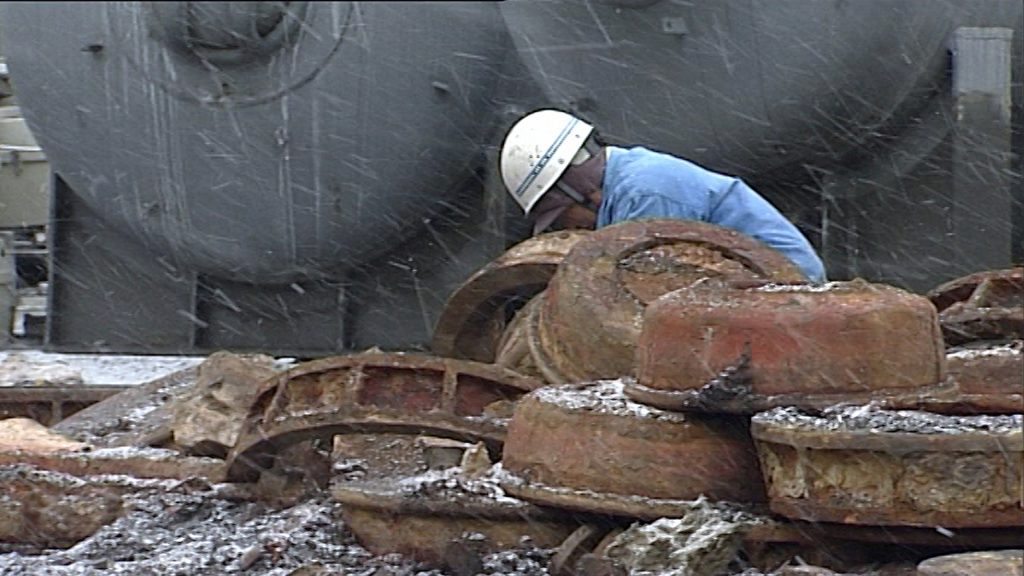

SYNOPSIS
In the centre of the Ruhr Valley the famous “heartbeat of steel” has gone silent. Almost imperceptibly, nature is reclaiming the once-busy factory halls and industrial sites. The conveyor belts have come to a standstill, the cooling towers are empty – after only eight years in operation, the ultramodern coke plant at Kaiserstuhl, built at a cost of 1.3 billion DM, was shut down in December 2000.
Spring 2003: A Chinese worker dressed in the traditional blue labourer’s overall surveys the vast factory grounds, making marks on steel beams and walls. A new microcosm has sprung up in northern Dortmund, a small Chinese outpost – dynamic and efficient. A village of housing containers has been set up for some 400 Chinese – with community rooms, an industrial-size kitchen with giant woks, and satellite dishes so they can watch TV shows from home. Hungry for wealth and the status symbols of western industrial culture, scores of Breakdown workers have joined the Chinese project manager Mo Lishi in Germany, along with a young Interpreter and a few Cooks, in order to bring back to their homeland yet another “steel souvenir”. Highly motivated citizens of a low–wage country come face-to-face with financially better-off workers in an industrialized nation who are now suddenly bereft of future prospects – since the former are about to transfer the latter’s erstwhile source of power and prosperity to their own homeland.
The dismantling of Kaiserstuhl proceeds at breakneck speed, driven forward by constant pressure from corporate management and the promise of a few perks: Every four weeks the Chinese select the seven hardest workers amongst their ranks as “Workers of the Month”. Their reward consists of a photo decorated with a sash of red paper flowers, hung on a canteen wall together with a few flowery, but in any case politically correct, words of praise.
Meanwhile, the German “shutdown managers” stand by and watch helplessly as their workplace is broken down into moveable sections. At Kaiserstuhl, where up to 800 people used to work, the last 30 employees are now supervising the so-called Shutdown Department – including electricians Rainer Kruska (53) and Werner Vogt (52). Among the Germans, who are supposed to provide logistical support for the dismantling process, a mood of scepticism and a distanced stance prevail with regard to Chinese colleagues and what they view as their careless methods. Communication between the two groups is difficult, misunderstandings a daily event. By 10 o’clock in the morning, half of the shift is already over for the German workforce. During their breakfast break, they talk over coffee and rolls about the financial losses they will suffer due to their enforced early retirement, and they speculate about the Chinese workers’ attitude toward life, their working techniques and their cooking. The dismantling forges ahead, unstoppable, daily parading before their eyes the loss of Germany’s, and indeed Europe’s, industrial work base. For the Ruhr Valley workers, this is a stab in the heart, for they have worked all their lives in the coke industry.
The workday for the Chinese is considerably longer: they toil sixty hours a week, live in common quarters and save every penny for home. Some want their children to enjoy a better education. Liu Guo Heng is saving for a yearned-for, but expensive, wedding. The cook wants to purchase shares in his employer’s company, increasingly convinced of its prospects for success. But first, their mission abroad must be completed – entailing one and a half years without a visit home. Chinese television and infrequent phone calls to wives and children constitute the men’s only contact with their homeland. “Say ‘Daddy’ to me one more time”, requests one man, and thousands of kilometres away a child sings a song for his much-missed father. All in a desperate attempt to feel somehow closer to loved ones so far away.
The Chinese have neither the time nor the money to get to know Germany, or even Dortmund; a bus ticket into town seems far too expensive, even with what is by Chinese standards a bountiful monthly pay check of 400 euros. Only project manager Mo Lishi is in a position to visit the city once in a while. His favourite destination is the Mercedes dealership, where he can marvel at steel in what is for him its most perfect form. “This car is very good”, he remarks with satisfaction, grinning from ear to ear. “I’m going to take one home with me.” His tiny cubbyhole at Kaiserstuhl, in which he both lives and works, is adorned with a Mercedes poster showing both an older and newer model by the German automaker. Inspired by its message, Mo Lishi has written a few personal lines about those who depart and the new ones who come and can look forward to a life full of promise. After all, Mo Lishi is convinced that he will soon be sitting behind the wheel of a new car and driving off into a better future – just like all of China. During his next visit to Germany, Mo Lishi says, he would love to be able to take the German Airbus factories back home with him.
There is rarely any contact between the German and the Chinese workers; they merely eye each other warily from a distance. The tools of the trade favoured by the Germans are rules and regulations for safety and environmental protection – just the things the newcomers like to ignore. They use tricks to try to circumvent the rules – after all, the “old foreigners” are hardly present at the site for more than eight hours at a time, and what they don’t see won’t hurt them. But the remaining German workers at Kaiserstuhl insist on asserting their authority – right up to the bitter end. With his expert background, Kruska makes sure that the Chinese don’t simply “do whatever they want to”. Improvised electrical connections are dismantled again, ladders precariously connected by wire are pulled away from the ceiling and disposed of, welding regulations are cited for the umpteenth time. It seems as though the Germans are unable to let go, as if they unconsciously want to delay the dismantling and simply cannot resign themselves to their final loss of power and the reversal of roles. The view of the German’s fastidiousness when it comes to following rules changes, however, when a Chinese worker almost dies in an accident – a “small work mishap” for which the only remedy proffered by the Chinese consists of quotations from Mao.
The last time he walks through the field of rubble that once was the grounds of the coke plant, Kruska opens circuit boxes and doors, presses switches that have long lost their function, gazes into disembowelled cable shafts and tries to uphold the appearance of a routine check – but he and his German colleagues have changed during these final weeks of the breakdown. The confidently triumphant proclamation “They’ll see – it will never work!” is no longer heard. The Germans are increasingly tense and sad – along with their workplace, they are also losing a piece of their homeland. Creeping insecurity can be felt as to what concrete impact the impending changes will have on their own lives. How is it possible to keep busy when no longer working, and what will it be like to be at home with the wife all day long? Even before the plant is completely disassembled, Kruska and Vogt are changed to a status called “Short-time work 0”, then to “Adjustment” and finally to early retirement. None of these terms is sufficient to describe the fact that there is no longer any work for them in this society; there seems to be no need for them anymore, nor indeed for their entire occupation. What they cannot foresee is that all the economic forecasts will prove wrong and the sale of the coke plant a tragic mistake. Today, there is spiralling demand for coke on the world market, spurred not least by the booming economy in China itself. The price per ton of coke went up in the years after Kaiserstuhl shut down from 30 to 550 dollars – as if globalization had a bitter sense of ironic humour and had chosen Dortmund-Mitte of all places as its punch line.
CREDITS
Losers and Winners
Work is Just a Part of Life
Germany 2006
96 Min (DT, EN, CHI)
Subtitles: english, german, spanish, french, portuguese, chinese
Short Version:
Verlieren und Gewinnen
for the Centre for Civic Education of the State of North Rhine-Westphalia
Germany 2006
35 Min
Directors: Ulrike Franke, Michael Loeken
Director of Photography: : Michael Loeken, Rüdiger Spott, Jörg Adams, Dieter Stürmer
Location Sound: Ulrike Franke, Csaba Kulcsar
Editor: Guido Krajewski, Timothy McLeish, Benjamin Ikes
Music: Maciej Sledziecki
Production: Christian Fürst
Commissioning Editor: Sabine Rollberg
Co-Production: WDR/arte, Goethe Institut
Supported by: Filmstiftung NRW
